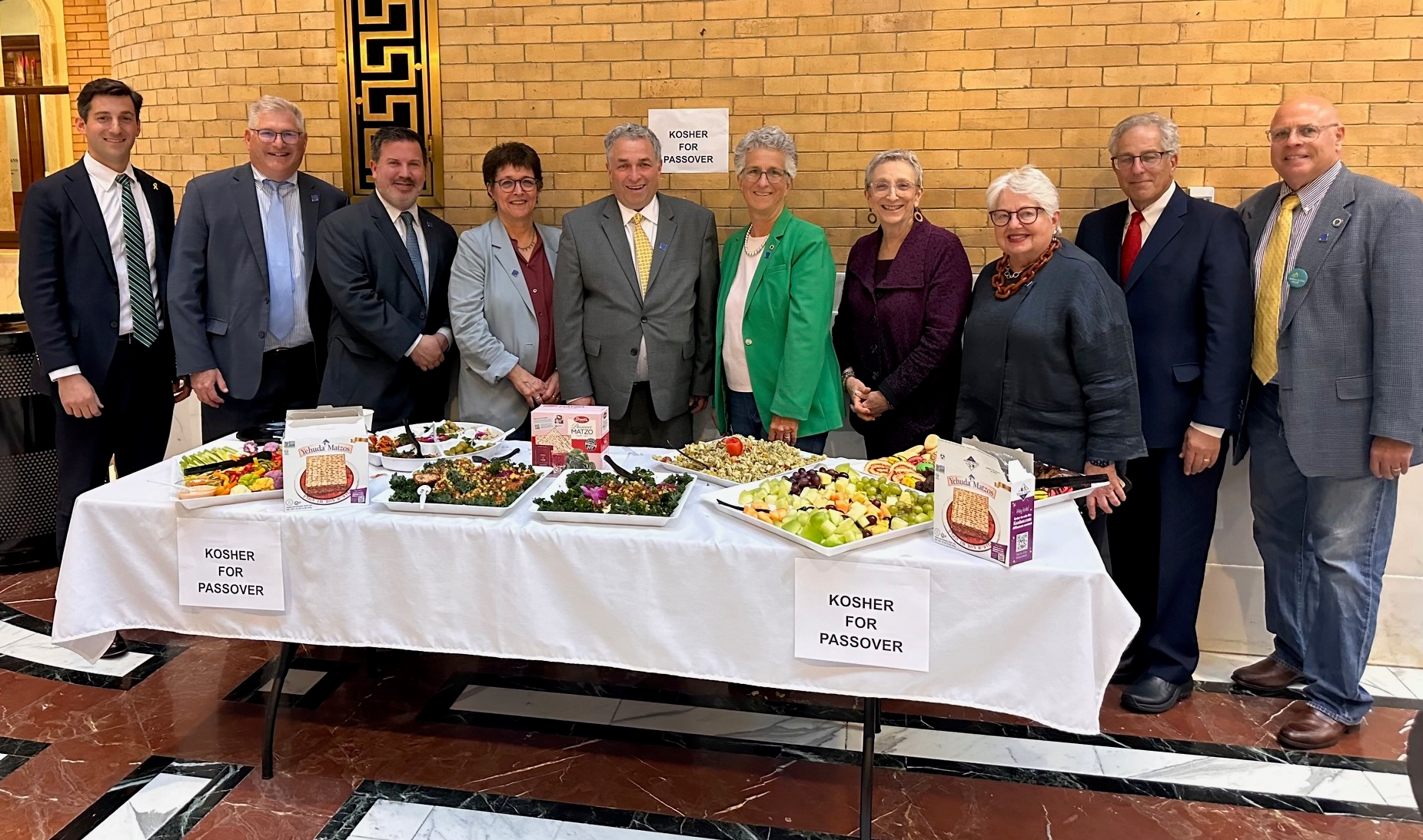BOSTON (JTA) – In all other years, the Massachusetts House of Representatives begins its annual budget debate on the Monday after Patriots’ Day, the state holiday that commemorates the first battles of the Revolutionary War.
But this year, lawmakers broke from their time-honored traditions and postponed the ritual — in deference to their Jewish colleagues.
That’s because the first Monday after Patriots’ Day this year was April 22, which coincided with the first night of Passover, when Jews around the world gather for the Passover seder.
When Rep. Ruth Balser realized that the traditional schedule would require her to be away from her family on the first night of Passover, she and other Jewish representatives brought the calendar coincidence to the attention of the House’s top lawmakers. Speaker Ronald Mariano and Aaron Michlewitz, the Jewish chair of the Ways and Means Committee, didn’t hesitate to adjust the schedule, she told the Jewish Telegraphic Agency.
“They immediately said, ‘We’ll have to figure out a new way,’” recalled Balser, who represents the heavily Jewish suburb of Newton.
Rather than disrupt the whole schedule by moving the ahead by a full week, they embraced postponing the start of the debate to Wednesday, recognizing that some representatives hold two seders. (Many traditionally observant Jews would also refrain from working on Wednesday, because Passover starts with two days in which many activities are prohibited.)
And in another first, Mariano and his leadership decided to have a kosher-for-Passover dinner catered for all of its elected legislators, rather than offer it just to Jewish lawmakers, as has been done in the past.
So instead of the usual lasagna or Chinese food, dinner on Thursday was prepared by The Butcherie, a kosher grocery and caterer in Brookline, the area’s historic Jewish neighborhood.
“It was fantastic,” Balser said, shortly after she and colleagues shared chicken skewers, beef kebabs, roasted vegetables and Passover pastries. She added, “And of course, there was matzah.”
The week of the budget debate is the only time during the legislative cycle that dinner is provided for the representatives because they typically work all day and well into the night, Balser said. She said that in more than a quarter century serving in the legislature, she did not recall any time when the budget debate overlapped with the first days of Passover, which fell unusually late this year.
“Crafting the state budget is one of the most important things the legislature does,” Balser said. She added, “There was a lovely feeling entering the Great Hall of the statehouse, with representatives who sat around tables and everyone had matzah. It was really special.”
There are 14 members of the Kosher Caucus, the representatives who identify as members of the Jewish community – either born Jewish or married into Jewish families. They will work with their non-Jewish colleagues to vote on more than 1,500 amendments to the budget this week.
A spokesperson for Mariano told JTA that it was important for Jewish House members and staff to fully participate in the budget hearings, despite it falling during Passover, because of the current climate. Like many places, Massachusetts has experienced a steep rise in reported antisemitic incidents related to the Israel-Hamas war, including a string of home vandalism in Newton and a man who was arrested after allegedly threatening a synagogue over his support for Palestinians.
“Not only because we want to accommodate people of all religious and cultural backgrounds, but also because it’s important that we stand with our Jewish friends during the recent rise in antisemitism that they continue to experience,” the spokesperson wrote in a text message.
Balser, who has long grappled with the place of Jews in progressive politics, said the response felt significant at a time of anxiety for local Jews.
“The fact that the Massachusetts House of Representatives and in particular, its leadership, was very sensitive, and … decided it was important to accommodate the Jewish calendar and traditions of a minority is very meaningful,” she said.
JTA has documented Jewish history in real-time for over a century. Keep our journalism strong by joining us in supporting independent, award-winning reporting.






